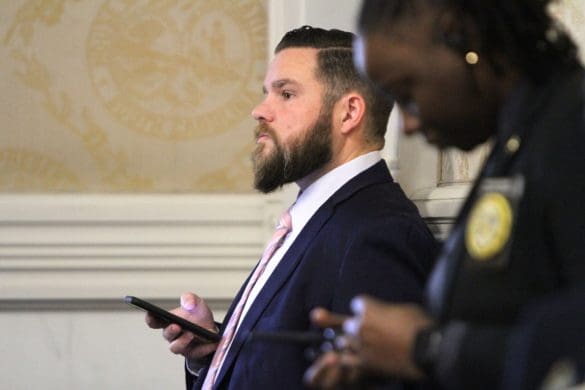A Catholic priest in Belarus, Rev. Henrykh Akalatovich, was sentenced to 11 years in prison on Monday after being convicted of high treason for criticizing the government. This marks the first politically-motivated prosecution of Catholic clergy in Belarus since the country gained independence after the Soviet Union collapsed in 1991.
The conviction comes as Belarusian authorities ramp up their crackdown on dissent ahead of the presidential election set for January 26, which is expected to secure a seventh term for the authoritarian leader, President Alexander Lukashenko.
Akalatovich, 64, has rejected the treason charges, and the Viasna Human Rights Center has listed him as one of the 1,265 political prisoners in Belarus. Viasna’s representative, Pavel Sapelka, stated that this is the first time a Catholic priest in Belarus has faced criminal charges typically leveled against political prisoners. The harsh sentence is seen as an attempt to intimidate and silence other clergy members before the election.
The priest, who has been in detention since November 2023, was diagnosed with cancer and underwent surgery just before his arrest. Akalatovich, a vocal critic of the government from the town of Valozhyn in western Belarus, has been held incommunicado, with prison authorities refusing to accept warm clothing and food sent to him.
Akalatovich is among many clergy members from Catholic, Orthodox, and Protestant denominations who have been imprisoned, silenced, or forced into exile for opposing the controversial 2020 election. This election, which was widely regarded as fraudulent by the opposition and Western nations, sparked massive protests. The government responded with a brutal crackdown, arresting over 65,000 people and using force against demonstrators.
Belarusian authorities have targeted clergy who supported the protests or offered sanctuary to demonstrators. They have summoned religious leaders for political talks, monitored their sermons, and checked their online activity in an effort to control the church’s influence.
While Orthodox Christians make up approximately 80% of the population, Catholics account for just under 14%, and Protestants make up about 2%.
President Lukashenko, who has been in power for nearly 30 years and has described himself as an “Orthodox atheist,” publicly criticized dissident clergy during the 2020 protests, urging them to focus on their religious duties rather than challenging the government.
Lukashenko, a close ally of Russian President Vladimir Putin, has allowed Russia to use Belarusian territory to deploy troops in Ukraine and station tactical nuclear weapons, further solidifying his alignment with Moscow.




